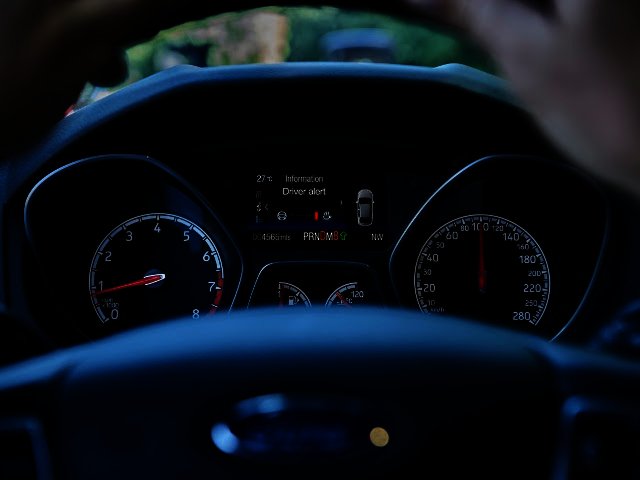Yesterday was is the longest night of the year. For many South Africans that drive at night, cover long distances, or find themselves feeling a bit tired after a long day at work, a long night behind the wheel can be a dangerous risk.
Arrive Alive reports that drivers who become drowsy or fall asleep at the wheel contribute to thousands of crashes each year. There are many reasons why the risk is increased:
- Driver’s own fatigue, which can cause sleepiness, lack of concentration, and reduced response time
- Decreased visibility, including depth perception and peripheral vision
- Pedestrians, cyclists, and bikers are not as clearly visible as during the day
- Reduced ability to judge speed and stopping distances at night
- Sharing the road with many other fatigued or drunk drivers
- Vehicle lighting cannot illuminate very far, resulting in reduced reaction time
Ford Technology Shines a Light
The most obvious way to avoid the dangers of driving at night is simply to avoid it altogether, but that is not always possible. Not every risk is beyond the driver’s control. Ford vehicles feature a range of technologies that can help mitigate the dangers of driving at night.*
- Not concentrating? Drifting off? Ford’s Lane Departure Warning is designed to keep you in your lane by recognising when you approach the road marking without using your indicator. Should this happen, the system alerts you with vibrations through the steering wheel.
- High beams can be dangerous. No one likes to be blinded by oncoming traffic. With Auto High Beam Control, your Ford can detect approaching lights, and when to turn high beams on and off, giving you the gift of visibility without the risk of blinding oncoming drivers.
- Sometimes it’s just hard to see at night and lapses of judgment when driving tired can cause you to forget to check your blind spot. Ford’s Blind Spot Information System (BLIS) is your second set of eyes. When changing lanes, indicator lights in your side mirrors let you know if there’s a vehicle in your blind spot. It also alerts you to traffic coming from either direction when reversing out of a parking spot or driveway.
- Traffic at night can be chaotic, but Ford’s Adaptive Cruise Control with Collision Warning helps you mitigate flow of the traffic. You don’t have to turn it on and off as traffic changes. Instead, the system adapts. If it senses slow moving traffic, it slows down. When the traffic clears, it goes back to your pre-set speed. It can even detect the potential for an accident to occur and alerts you with a brake light warning on your windscreen and pre-charges your brakes.
- Feeling tired? On highways and motorways, overhead gantries and roadside signs flash warnings that highlight the dangers of driving tired. Ford’s Driver Alert system uses a forward‑facing camera to identify lane markings, detect unintentional sideways movements and displays a coffee cup symbol to indicate it could be time to take a break.
Ford is continually striving to improve the technologies on its vehicles that make driving both safer and more comfortable.
*Features available on select models. Contact your nearest Ford dealer for more information





